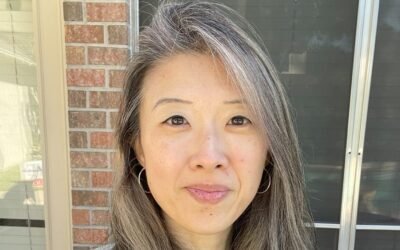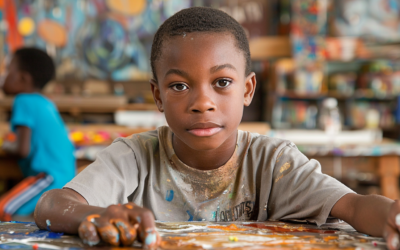Neurologist Dr. Dona Murphey launches PrognosUs to bridge gaps in dementia care

Building on her experience as both a neurologist and caregiver to six family members with dementia, Dr. Dona Murphey has created PrognosUs, a pioneering platform addressing the unique challenges faced by families navigating dementia care. Recognizing the significant gaps in support, particularly for communities of color and immigrant families, PrognosUs offers accessible, culturally sensitive resources and builds communities of support. In this interview, Dr. Murphey discusses how her platform is working to transform the landscape of dementia care through education, peer support, and direct assistance.
[Editor’s note: This is a truncated transcribe of a longer video interview. Please see the video for the extended version. Some errors may occur.]
Why did you create a platform to help people navigate the complicated area of dementia?
It’s very personally motivated in a lot of ways. I’ve now seen the sixth person in my family, not all biological relatives, also like an in-law, an adoptive parent, but soon, first nonetheless, I’ve experienced this disease. And then I’ve seen also the people around them having to mobilize to give care. And it is so difficult, both for the patient, I have no doubt, but it’s hard for me to be inside of that person’s head because they’re losing their ability to communicate their distress. And also, there’s a lot of shame around it, and so they don’t communicate it.
For our communities of color, people who are African-American, people who are Latino, people who are Asian-American, as a function of our language access issues often, and sometimes also the immigration access issues to healthcare, we do not have the information that we need to be able to manage the symptoms that are often very difficult to manage at every level—physically, emotionally, socially, financially. Nobody tells us in a way that we find to be relatable or that is even accessible because it’s not even in our language how to navigate these things, whether that is wandering, whether that is incontinence, aggression, agitation, hallucinations, delusions, all of these things, which probably sound pretty scary to people who don’t, who aren’t familiar with this disease, are quite common in dementia.
Can you tell us about your platform?
PrognosUs.com with a “U.S.” That word PrognosUs, spelled with an “I.S.,” of course, means your journey, like beyond your diagnosis with a disease. What does that journey look like? And we spell it deliberately this way to say that it is much different with us together than “I” alone. And so, we are basically like a very community-centered group of kind of peer-to-peer support. And that is both moral and material aid. We’re a direct aid organization. So, we are for-profit, but we actually turn like a bunch of that profit into direct grants, caregiver grants. We have most of our resources completely free.
And otherwise, we have low-cost subscription resources. That includes actually something that is not for diagnosis, but actually gives you some idea educationally of what might explain the symptoms that you’re observing. It’s a screening and a staging tool. And hopefully, that thing will motivate you and also support you to actually advocate to get a formal diagnosis for your loved one.
What conversations should someone have with their family if they feel they’re losing cognitive function?
This is such a challenging one. Again, because I think we are overcoming a lot of cultural stigma around this disease. I would encourage people to maybe look towards like kind of methods of communication that really start from communicating what needs you have through basically disclosure of how you’re feeling about what you’re experiencing to get people to understand like how to move to support you. If you’re noticing these things subjectively, I think really the first thing to do is to get a formal diagnosis. And I think if you communicate even to people who may not want to hear it or believe it, that you’re feeling very anxious, you’re feeling afraid, you’re feeling, yeah, like ashamed that you can’t do certain things anymore.
And that you’re also concerned that people are not going to believe you, and you really are seeking support from the people that you care about most for them to help you to figure out what this is. Sometimes you don’t get the support that you need from those individuals. And then I think the same thing happens on the caregiver side when they’re really trying to help the person that they love and other people are not mobilizing around it. They’re in denial. And this is why we have a platform like PrognosUs so that you can connect with other people who basically become kind of your support network, an extension of that natural support system.
What resources does PrognosUs offer to help people right now?
Please check out prognosus.com. You can sign up for our newsletter right away on the first page, and that will get you connected to us. I try my best to reach out to everyone personally still at this point. We’re small enough that that’s possible. And you’ll get a newsletter from us every week. You’ll learn about all of the free opportunities that we have to attend like kind of educational webinars. And we always root things in story because we know that that’s the best way to learn.
We have a beginner’s guide to dementia that you can sign up to download. We release that in chapters, comprehensive but concise, only a few pages per each chapter. And we always have a checklist at the end of each chapter that is holistic. We have WhatsApp chats that we do that are private chats with our team. And we also do weekly caregiver check-in sessions, which is where you will be able to connect with the other caregivers. Also, we have WhatsApp groups for caregiver-to-caregiver connection. But on the weekly sessions, we have facilitators who are trained in dementia. And I’m also often there as an educational resource.
Please don’t continue to feel alone and abandoned, which is, those are the words that like so many of our caregivers use to describe their experience. It takes a huge toll on caregiver health also. And that’s, I think, a public health epidemic on its own. So please don’t allow that to happen to you and join us, join us preventatively and not reactively.











